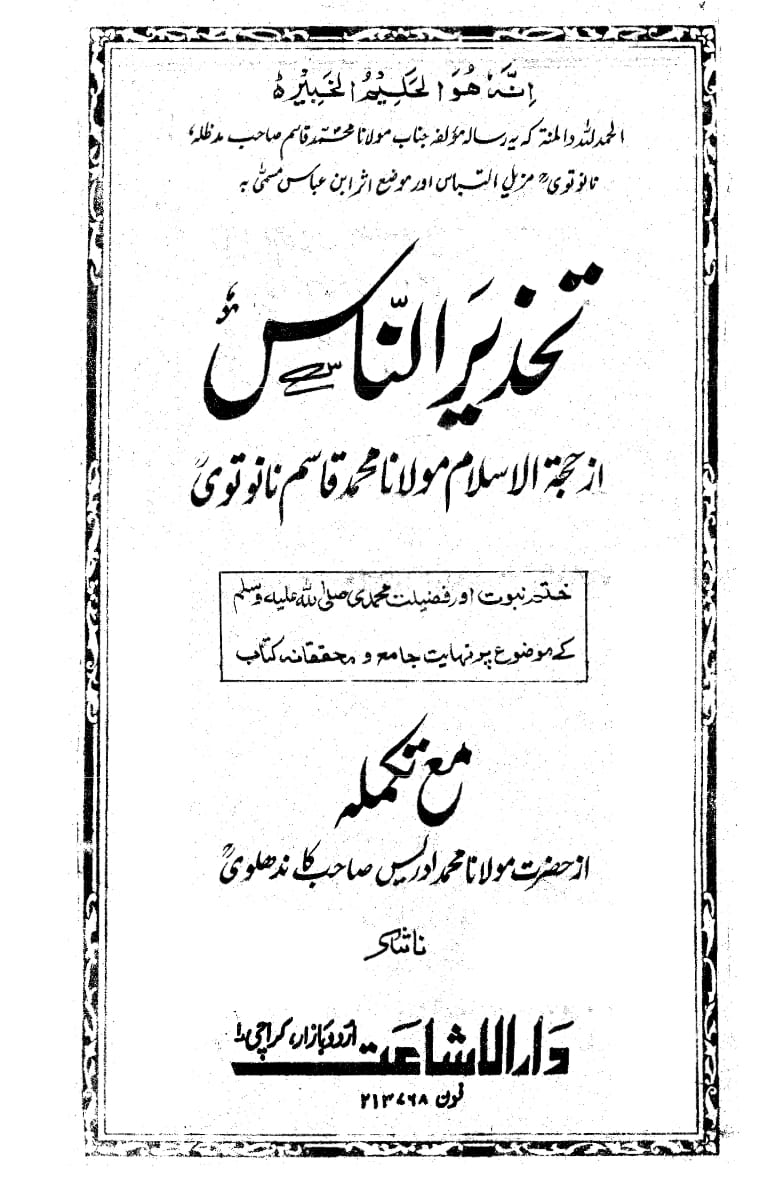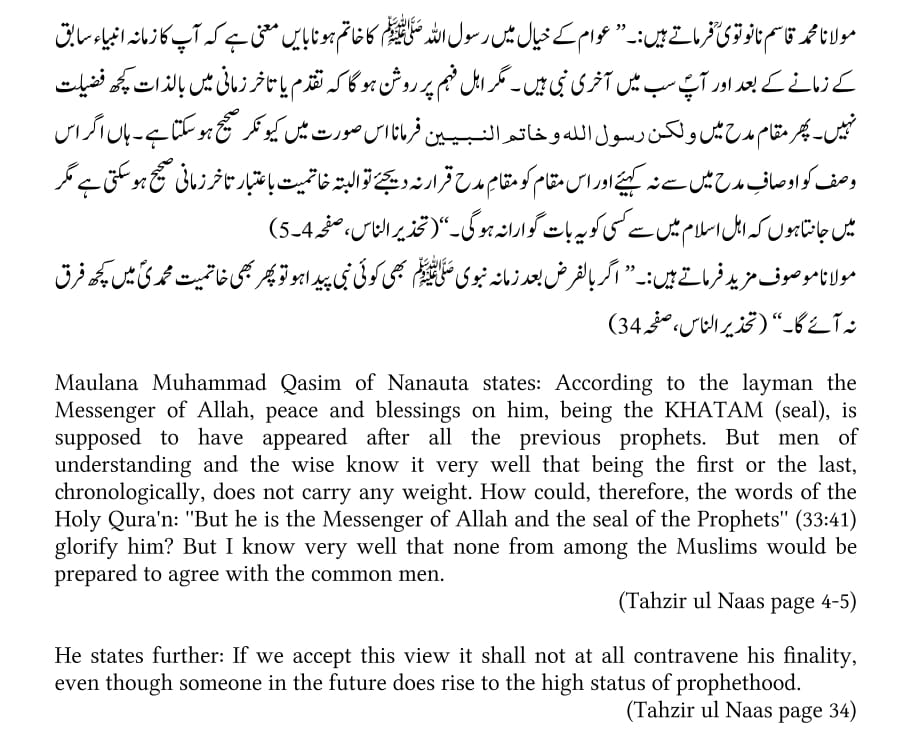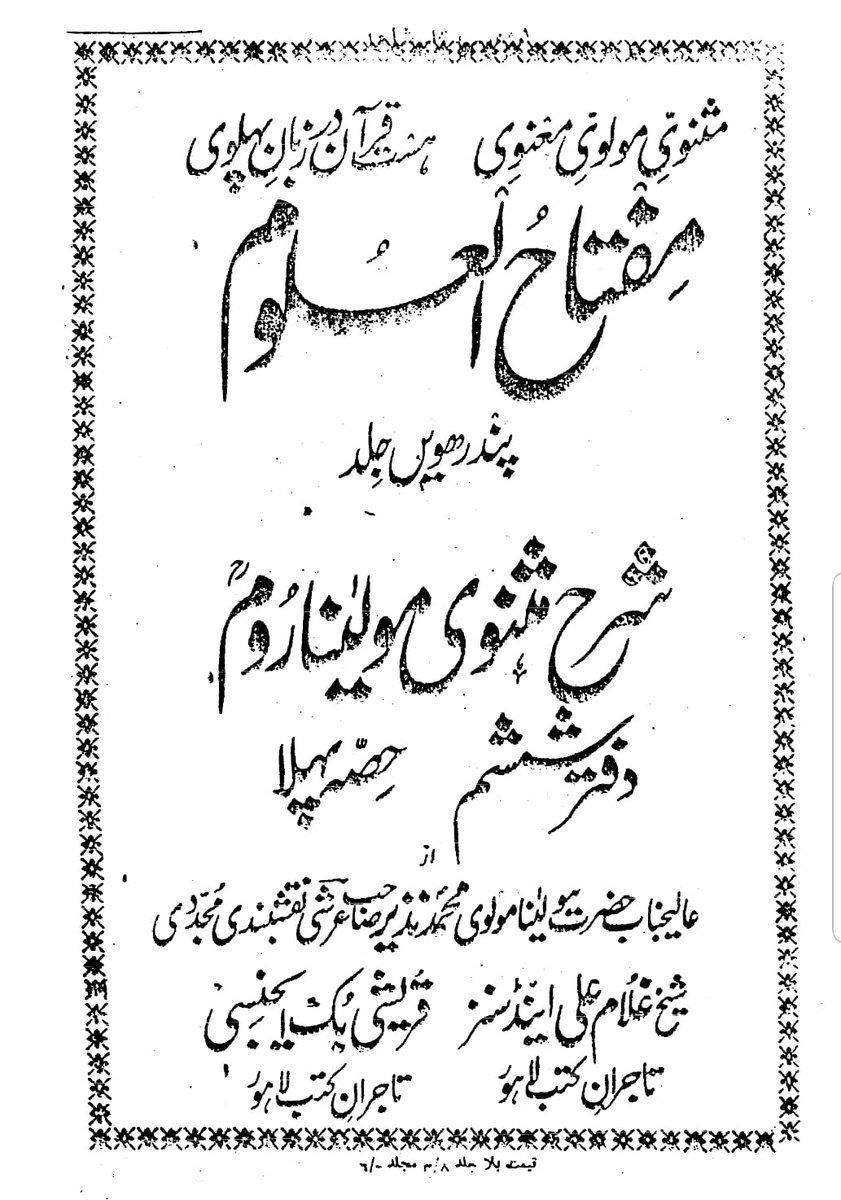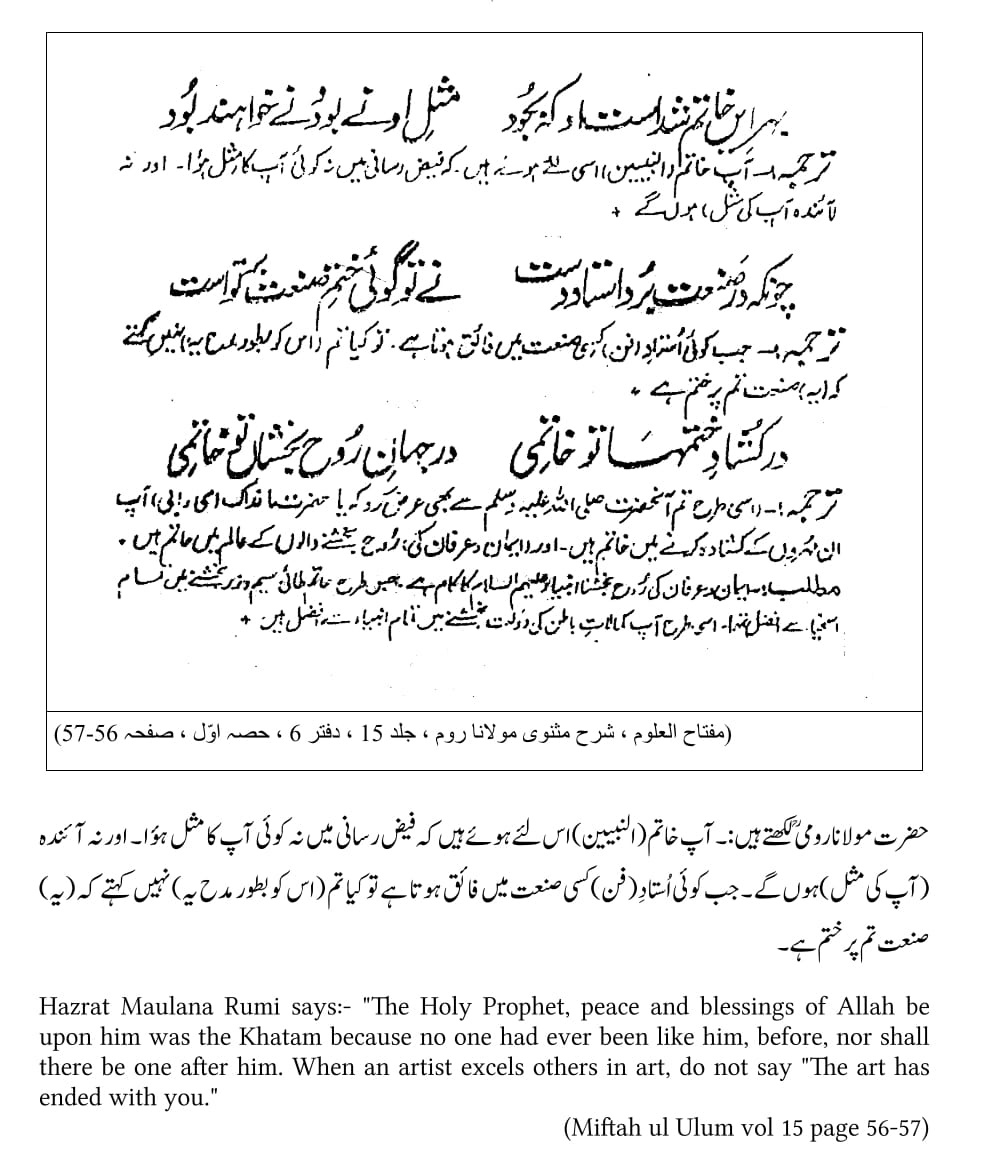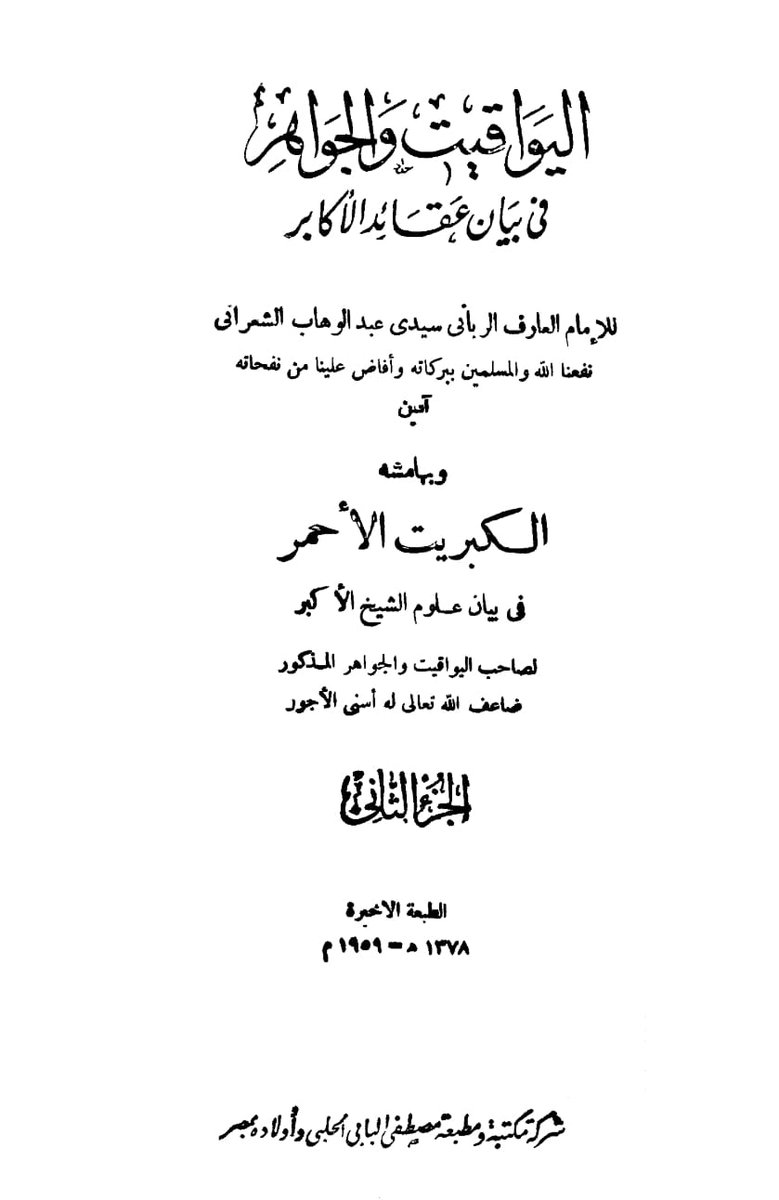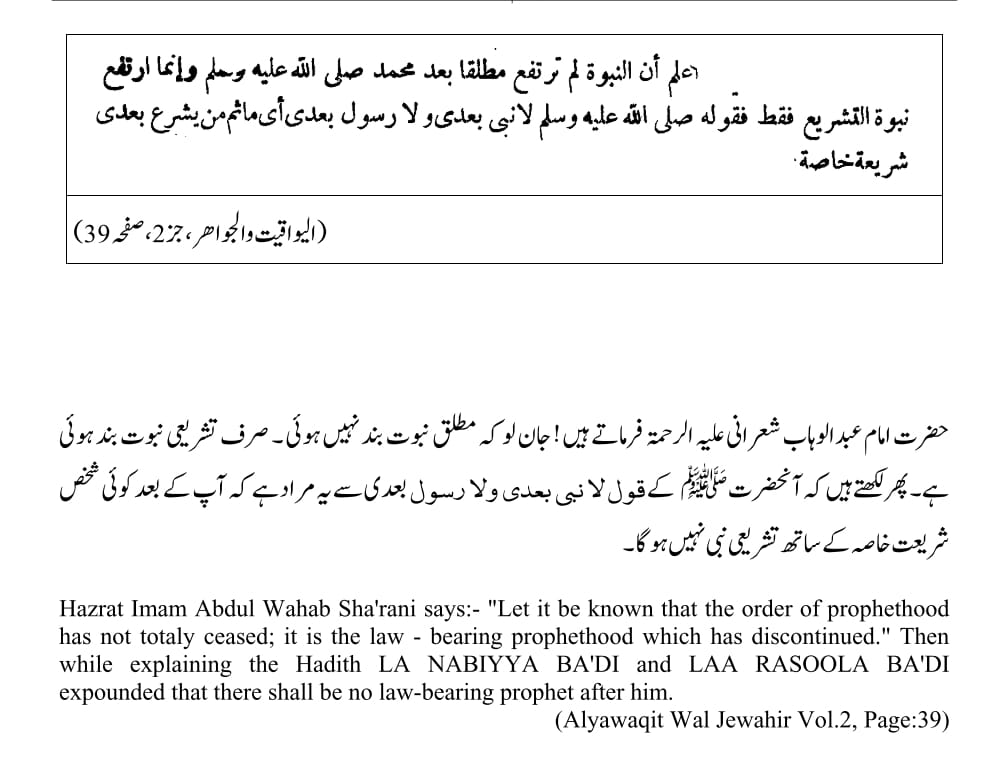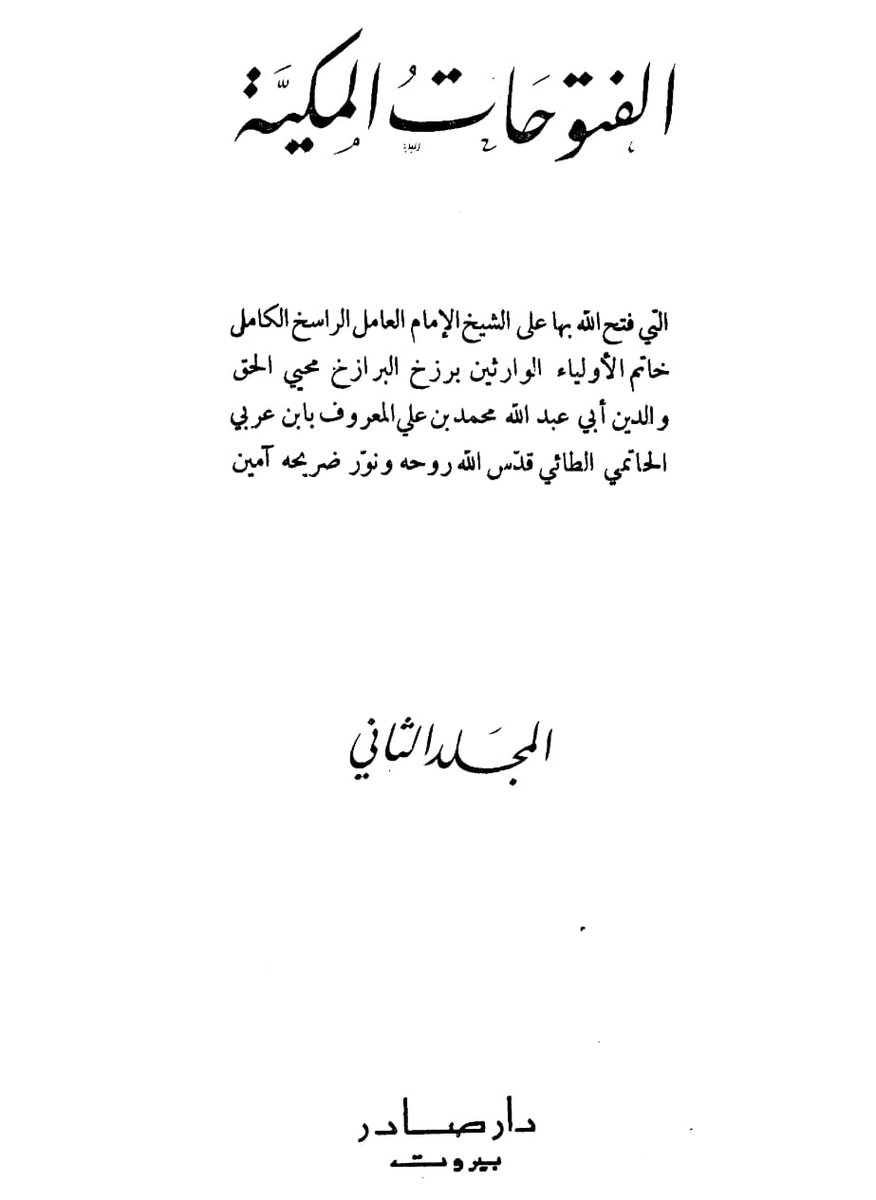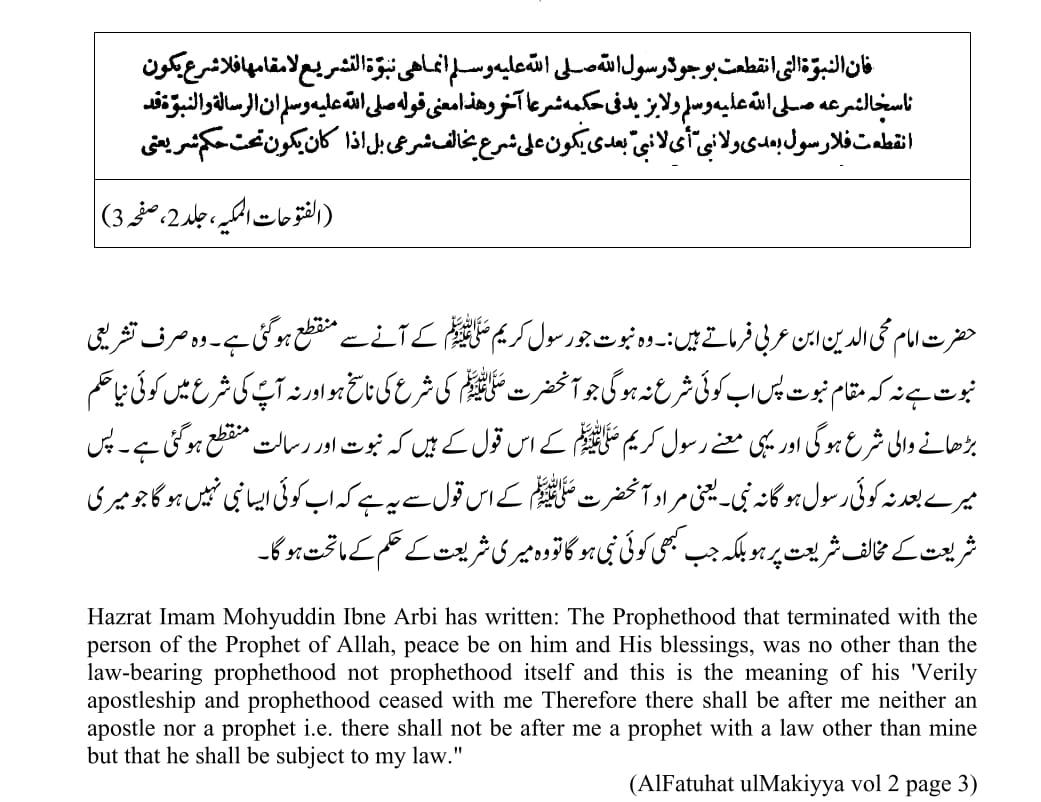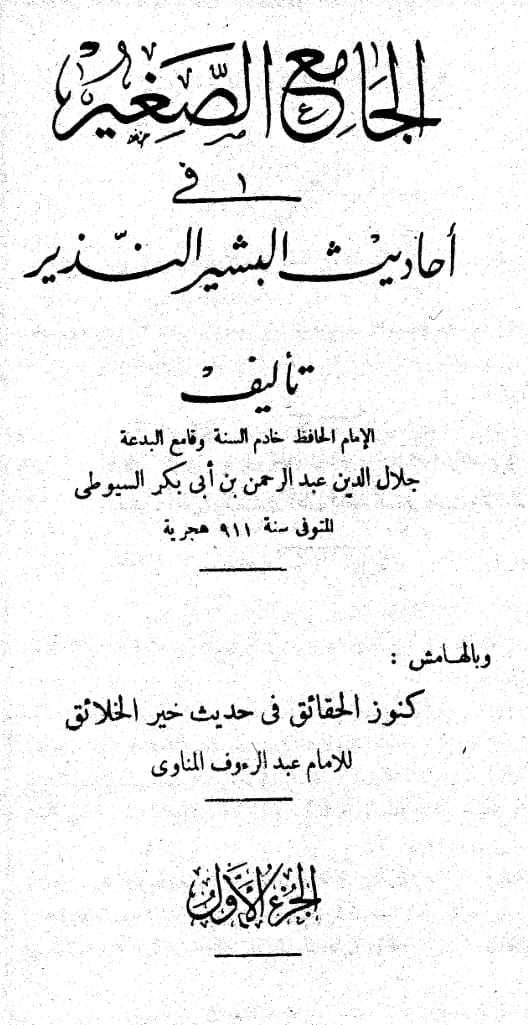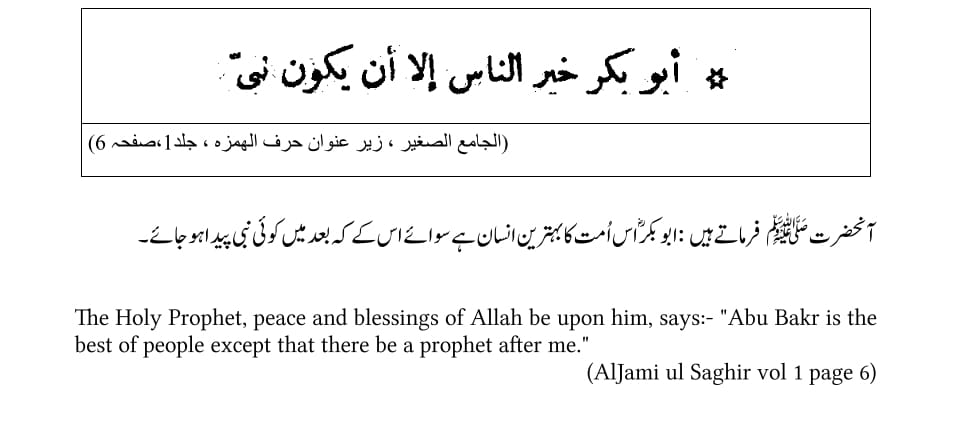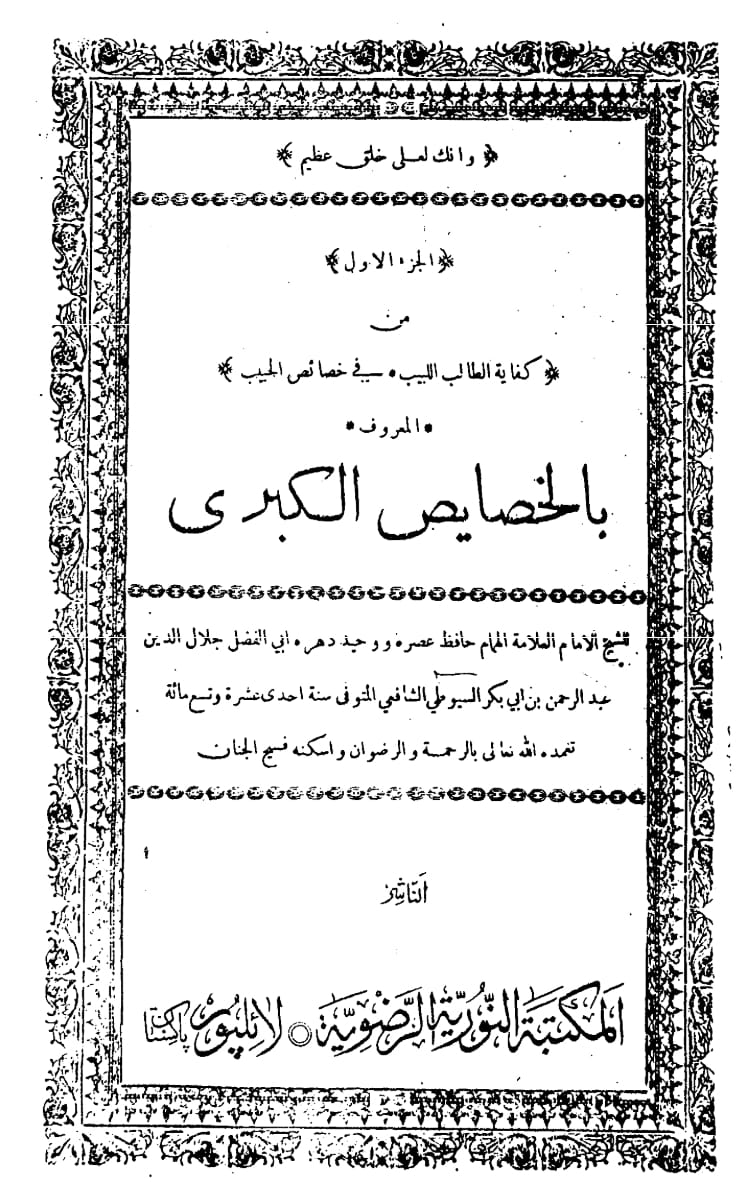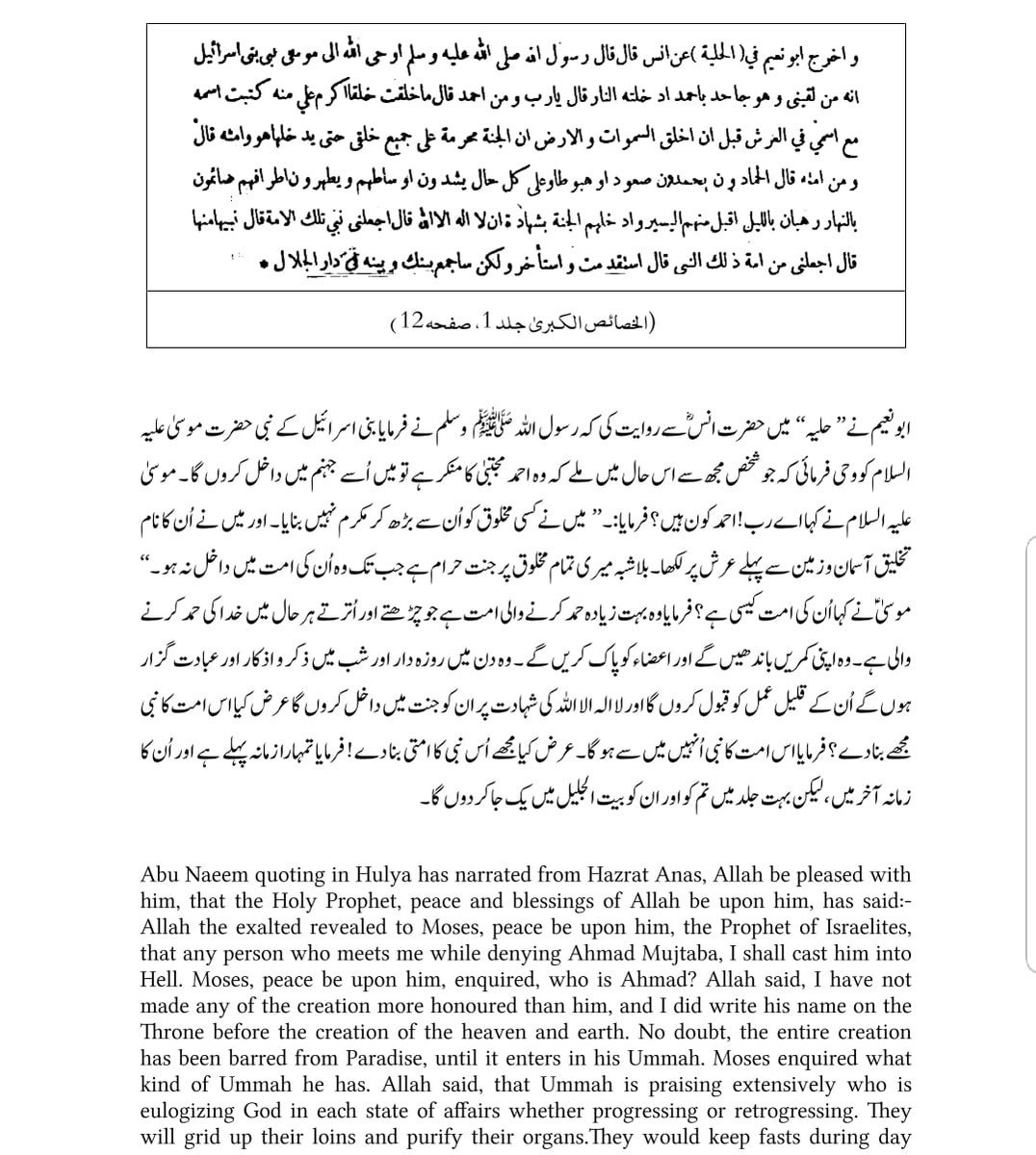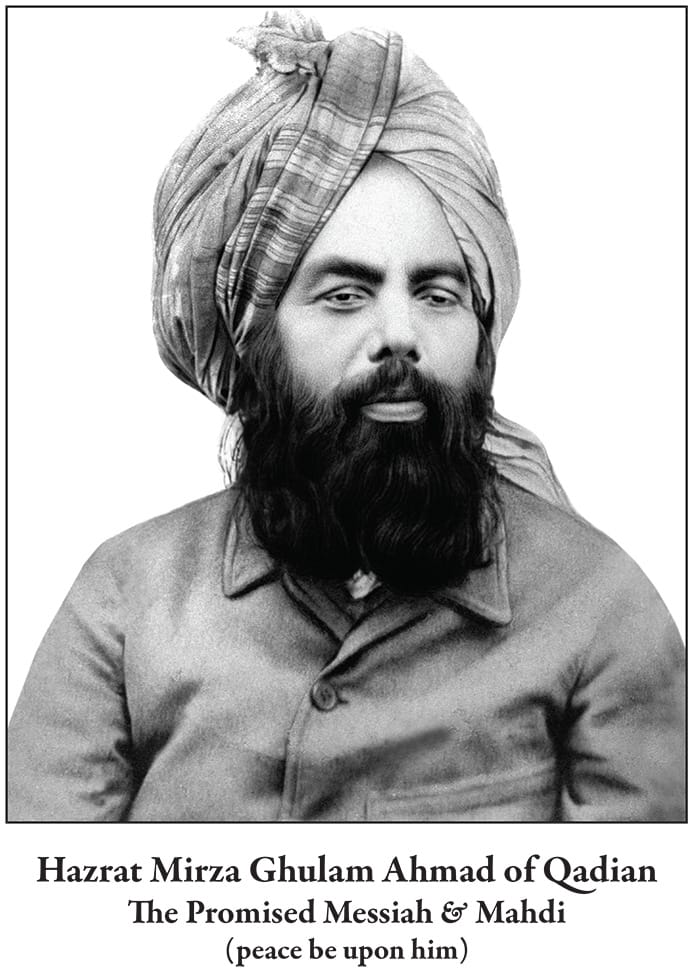Do the Ahmadi Muslims believe in Khatm-e-Nabuwwat of the Holy Prophet of Islam صلی اللہ علیہ وسلم?
Thread https://abs.twimg.com/emoji/v2/... draggable="false" alt="👇" title="Down pointing backhand index" aria-label="Emoji: Down pointing backhand index"> [Part ONE]
https://abs.twimg.com/emoji/v2/... draggable="false" alt="👇" title="Down pointing backhand index" aria-label="Emoji: Down pointing backhand index"> [Part ONE]
Thread
Ahmadi Muslims are often accused that they do not believe in the ختم نبوت. More often than not, they are accused of stealing the Khatm e Nabuwwat ختم نبوت کے ڈاکو. As if it is a material thing that can be stolen. Anyhow, here is my take on this issue.
The founder of the Ahmadiyya Muslim Community said, “I swear by the glory of God and His Majesty that I am of the faithful, a Muslim and I believe in Allah, the High, in His Books, and in His Messengers and in His Angels and in Life after death....
... And I believe that our Prophet Muhammad the Elect of God (peace of Allah be on him and His blessings) is the most eminent of the prophets and the Seal of Apostles.” (Hamamatul Bushra, page 6)
He again says:
“The charge made against me and my Community that we do not believe the Messenger of Allah (peace be on him and His blessings) to be the Seal of Prophets is a big falsehood....
“The charge made against me and my Community that we do not believe the Messenger of Allah (peace be on him and His blessings) to be the Seal of Prophets is a big falsehood....
The faith, the conviction, certitude and the utterness that characterize our belief in the Holy Prophet as the Seal of Prophets, are markedly absent in the belief of these people (those who level this charge at us).” (Al-Hakam, March 19, 1905)
Having that said, now let us analyze the term at hand #KhatmeNabuwwat #KhaatamunNabiyyeen. This is an Arabic term, NOT an urdu term. Therefore, we must see what it means in Arabic language.
Khaatam (خاتَم) with a fatha/zabar on ت stems from the root خ۔ت۔م. It means;
1. To stamp or place a seal of approval on something.
2. It also means a ring. Because in the olden days, a ring was used to stamp official documents for authentication purposes.
1. To stamp or place a seal of approval on something.
2. It also means a ring. Because in the olden days, a ring was used to stamp official documents for authentication purposes.
(Holy Prophet had a ring which he would use to stamp official documents). The ring (Khaatam) had Muhammad Rasool Allah inscribed on it. A look alike of that ring is attached below along with the copy of 2 letters issued by the Holy Prophet that bore his seal/stamp.
3.The best of something.
4. One through whom a certain subject reaches its pinnacle.
What it does NOT mean is LAST according to the time and space.
4. One through whom a certain subject reaches its pinnacle.
What it does NOT mean is LAST according to the time and space.
In other words, Khaatam literally means a ring or a seal which is used to stamp. Keep in mind that every time Khaatam is used in a genitive construct case (مضاف و مضاف الیہ) followed by a plural form of a noun then it always is used to denote as the best/authority in that field.
For example, if we put Khaatam followed by al-Shu’ara then it would always mean the best of the poets. Similarly Khaatam al-Hukama’ would mean the best of the Wise people, Khaatam al-at-Qiya would mean the best among the God fearing people etc.
You must be wondering, how come the Arabs don’t know this? Well, they do. Here is the proof.
When the famous Abbasid era poet Abu Tammam at-Taai passed away in the second century after hijra, another famous poet Hasan Bin Wahab wrote the following couplet as eulogy for him:
When the famous Abbasid era poet Abu Tammam at-Taai passed away in the second century after hijra, another famous poet Hasan Bin Wahab wrote the following couplet as eulogy for him:
فجع القریض بخاتم الشعراء
وغدیر روضتھا حبیب الطائی
With the passing of the Seal of the Poets Habeeb at-Taai, Poetry has suffered a huge loss,
He was the rivulet in the Garden of Poetry (Wafiyatul A’ayan Li Ibn Khallikan, Vol. I, p. 123, Cairo)
وغدیر روضتھا حبیب الطائی
With the passing of the Seal of the Poets Habeeb at-Taai, Poetry has suffered a huge loss,
He was the rivulet in the Garden of Poetry (Wafiyatul A’ayan Li Ibn Khallikan, Vol. I, p. 123, Cairo)
Here the word Khaatam al-Shu’ara has been used to denote the best among all the poets. Otherwise, if Khaatam means the last in terms of era, then it would mean that no poet has come/ no poet can come after Habeeb at-Taai which is factually wrong. Many did, but not of same caliber
Similarly the word khatam has been used for the famous Muslim Polymath and world renowned physician Bu Ali Sina (Avicenna). He is famously known as the Khaatam ul Atibba’ (خاتم الاطباء). He was considered as the best of the physicians NOT as the last of physicians.
Another example is that of Al-Mutanabbi who was a famous poet from the 3rd/4th Islamic century who was also called by some as the خاتم الشعراء
The term Khaatam has been used in a genitive construct form by the Holy Prophet صلی اللہ علیہ وسلم for 2 other individuals. The uncle of the Holy Prophet صلعم was called خاتم المھاجرین Khaatam al-Muhaajireen.
“Rest assured O uncle! You are as Khaatamul Muhaajireen in Hijrah – migration as I am Khaatamun Nabiyyeen in Nabuwwat – Prophethood”. Did no one migrate after Hazrat Abbas رضی اللہ عنہ? Of course many did. But their migration was not of the level as that of Hazrat Abbas.
The term khaatam has also been used by the Holy Prophet صلی اللہ علیہ وسلم for Hazrat Ali رضی اللہ عنہ. The Holy Prophet had called Hazrat Ali as Khaatam al-Awliya خاتم الاولیاء. In another tradition Holy Prophet had called him Khaatam al-Awsia خاتم الاوصیاء .
Again, we note that the meaning of Khaatam when it comes in this genitive construct form, means best of that category, in this case, best of the awlia Allah.
Now let’s see how the scholars of Islam had explained the term Khaatam un Nabiyyeen.
1. Allaama Abdur Rahman ibn Khuldoon: “Saintliness is analogous to prophethood; just as there are various ranks in prophethood, there are similar ranks in sainthood....
1. Allaama Abdur Rahman ibn Khuldoon: “Saintliness is analogous to prophethood; just as there are various ranks in prophethood, there are similar ranks in sainthood....
One who possesses the best of the saintly qualities is called Khatamul-Auliya’, just as the one who possesses the best of the qualities of prophethood is known as Khatamul-Anbiy”’ (al-Muqaddimah ibn-e-Khaldun, vol. 1, p. 271)
2. Abu Sa’id Mubarak Ibn e Ali Mukharrami: “Man holds the highest position of all creation. When he rises, all the noble qualities in all their grandeur find their manifestation in him and he is called the Perfect Man....
The noble qualities in all their grandeur have found their perfection in our Holy Prophet(sa) and therefore he is Khatamun-Nabiyyin. (Tuhfa Mursalah Sharif, by Abu Sa‘id Mukharrami, translation and commentary by Muhammad ‘Abdul-‘Aziz Jalandhari, p. 51)”
[Part TWO]
Thread on #KhatmeNabuwwat and #KhaatamunNabiyyeen
The Holy Prophet صلعم mentioned in a hadith that had his son Ibraheem رضی اللہ عنہ lived, he would have been a prophet of Allah. This shows that even according to the Holy Prophet صلعم a subordinate prophet could come
Thread on #KhatmeNabuwwat and #KhaatamunNabiyyeen
The Holy Prophet صلعم mentioned in a hadith that had his son Ibraheem رضی اللہ عنہ lived, he would have been a prophet of Allah. This shows that even according to the Holy Prophet صلعم a subordinate prophet could come
Here is an example to help you digest what is mentioned above. Imagine if Ali had lived, he would have acquired his Masters degree. Why did he not acquire it? because he died. Does this show that the degree of Masters is unattainable? Absolutely not. It shows on the contrary.
Don& #39;t take my word for it. The Muslim scholars throughout the ages have said the same thing that Prophethood which is subordinate to the Holy Prophet صلعم is attainable in this Ummah. Here is Scholar # 3. Allama Ali al-Qari on this subject.  https://abs.twimg.com/emoji/v2/... draggable="false" alt="👇" title="Down pointing backhand index" aria-label="Emoji: Down pointing backhand index">
https://abs.twimg.com/emoji/v2/... draggable="false" alt="👇" title="Down pointing backhand index" aria-label="Emoji: Down pointing backhand index">
4. Mujaddid Alf-e-Thani Hazrt Sheikh Ahmad Faruqi Sirhindi: “Following the advent of Hazrat Muhammad, the Chosen One, the Seal of the Prophets(sa), the attainment of the attributes of prophethood by his followers as subordinate or by way of inheritance...
will in no way conflict with his status as the Seal of the Prophets. So do not be amongst the doubters. (Maktubat Imam Rabbani, Book 1, Maktub no. 301, vol. 5, p. 141)”
5. Mawlana Abdul Hayy Firangi Lakhnawi: “Scholars of the Ahl-e-Sunnah also expound that no such prophet can come during the time of the Holy Prophet صلعم who can bring a new shariah… and he who would be a prophet during Holy Prophet’s time would be under the shariah of Muhammad
… It is not impossible for a prophet to appear during or after the time of the Holy Prophet peace be upon him. What is forbidden is a person who claims to bring a new shariah” [Daafiul Wasaawis Fi Asr Ibn Abbas Page 3 and 12]
These references beg the question as to what has then concluded from Nabuwwat - Prophethood? I& #39;ll let the scholars of Islam answer this for you as well.
6. Hazrat Abdul Karim Jilani& #39;s stance is as follows https://abs.twimg.com/emoji/v2/... draggable="false" alt="👇" title="Down pointing backhand index" aria-label="Emoji: Down pointing backhand index">
https://abs.twimg.com/emoji/v2/... draggable="false" alt="👇" title="Down pointing backhand index" aria-label="Emoji: Down pointing backhand index">
6. Hazrat Abdul Karim Jilani& #39;s stance is as follows
7. Mawlana Qasim Nanutwi shares his aqeedah along with that of the people of knowledge vs. that of the common folk. Take a big breath folks, you& #39;re about to be read what the scholars of today hide.
9. Imam Abdul Wahab She& #39;raani stated:
All these scholars among others have stated that for a subordinate prophet (who does not bring any new shariah but rather follows the shariah of Holy Prophet صلعم) to come after Holy Prophet صلعم is not forbidden in Islam nor is it against Khatam e Nabuwwat of the Holy Prophet.
Some one can say that a subordinate prophet can come after the Holy Prophet صلعم does not mean that he WILL come. Well, according to the Holy Qur& #39;an and Ahadith, such a subordinate prophet is promised to come by Allah the Almighty in this Ummah. Here is one hadith:
Here is another interesting hadith for your kind consideration. From the following hadith it becomes evident that a subordinate prophet is to come in the Ummah of the Holy Prophet صلی اللہ علیہ وسلم who would be a follower of the Holy Prophet first & then a subordinate prophet
And the claim of the founder of the Ahmadiyya Muslim Community is:
"All prophethood except Muhammadan prophethood has ended. No law-giving prophet shall ever come, and a prophet without law may, but only such as is primarily a follower of the Holy Prophet (Allah bless him)....
"All prophethood except Muhammadan prophethood has ended. No law-giving prophet shall ever come, and a prophet without law may, but only such as is primarily a follower of the Holy Prophet (Allah bless him)....
I am both a follower and a Prophet.” (Tajalliyate Ilahiyya by Hazrat Mirza Ghulam Ahmad, pp. 24-25)
This is exactly what the previous scholars of the Muslim Ummah had also written. Unfortunately, it is the Mullah who leads people astray. May Allah protect us from jaahil mullah.
This is exactly what the previous scholars of the Muslim Ummah had also written. Unfortunately, it is the Mullah who leads people astray. May Allah protect us from jaahil mullah.

 Read on Twitter
Read on Twitter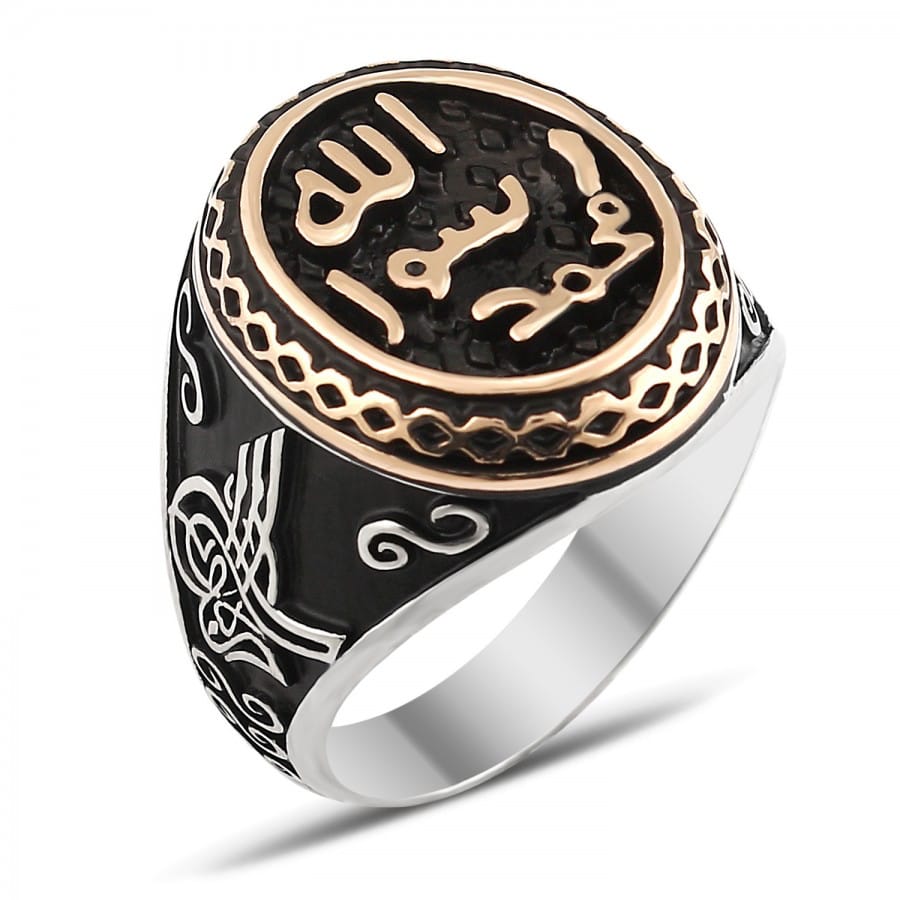

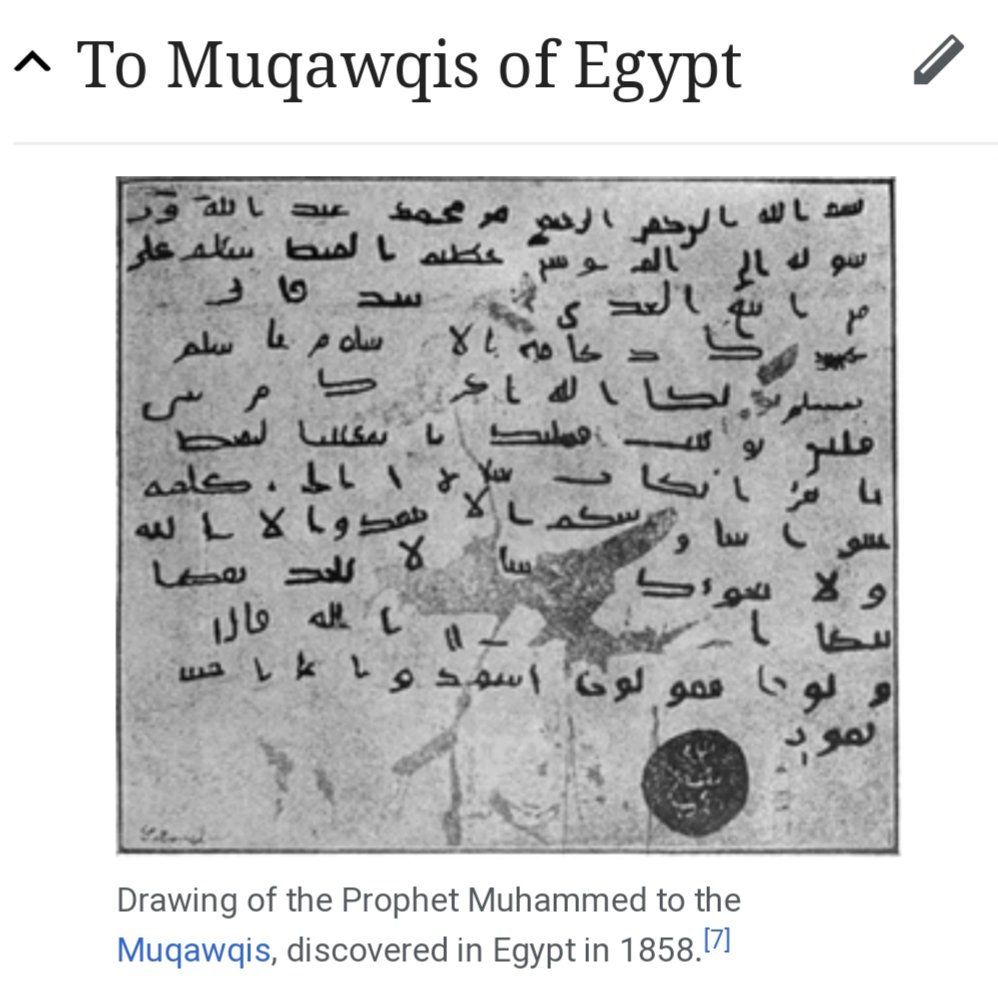
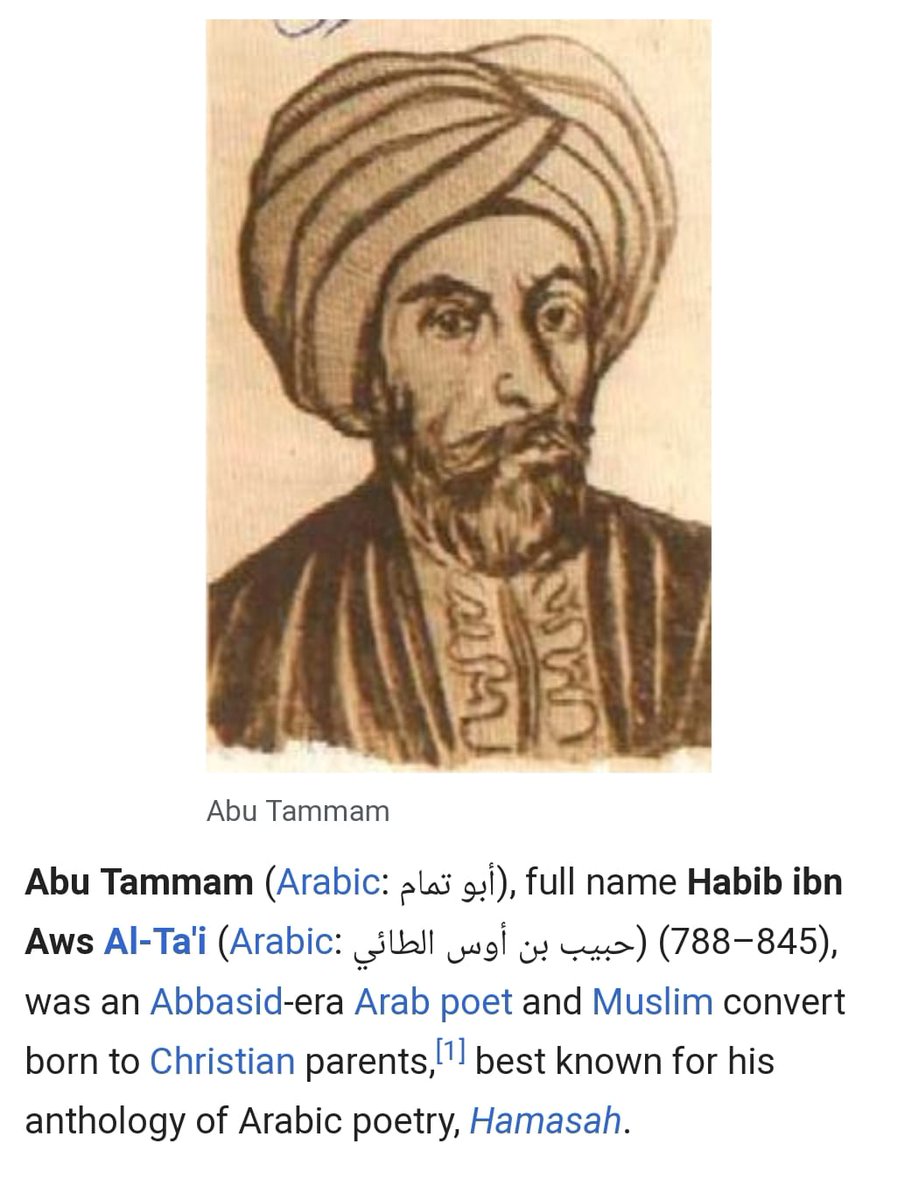
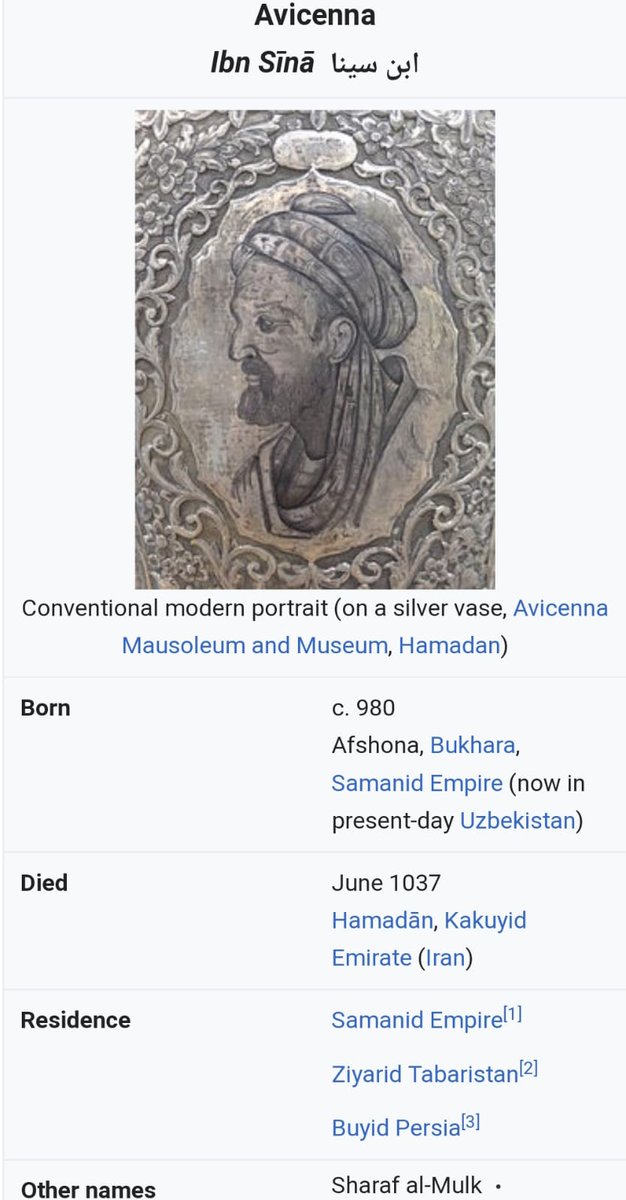
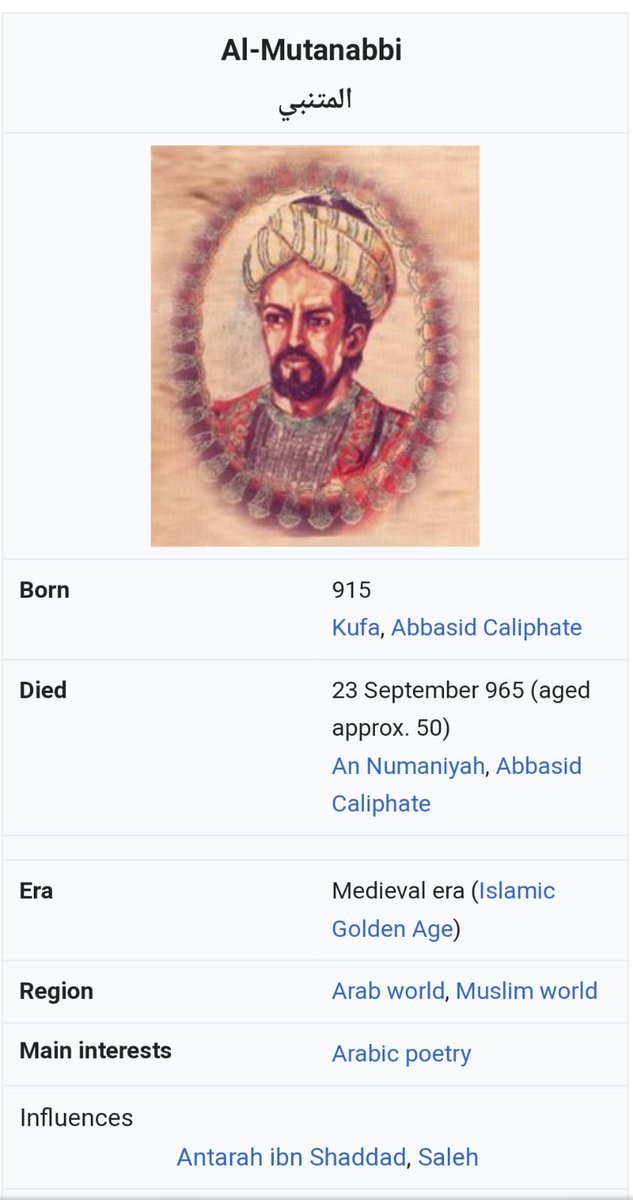
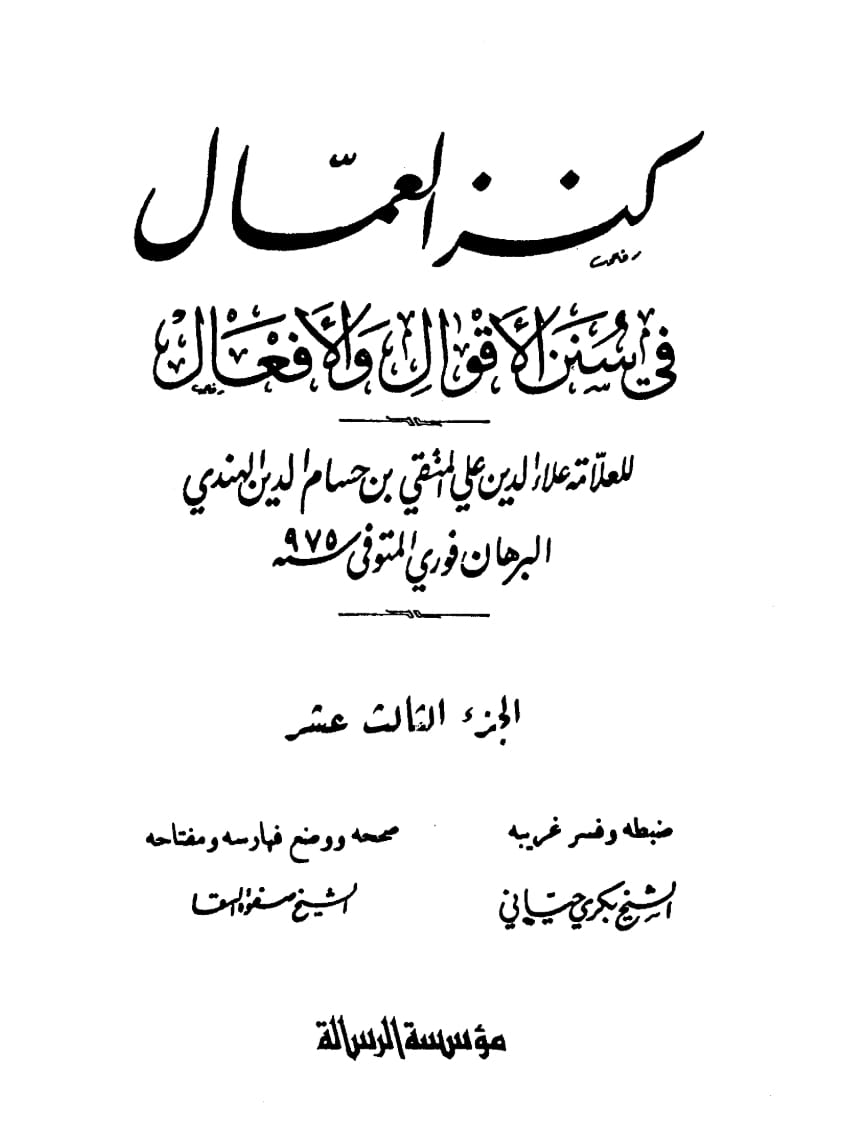
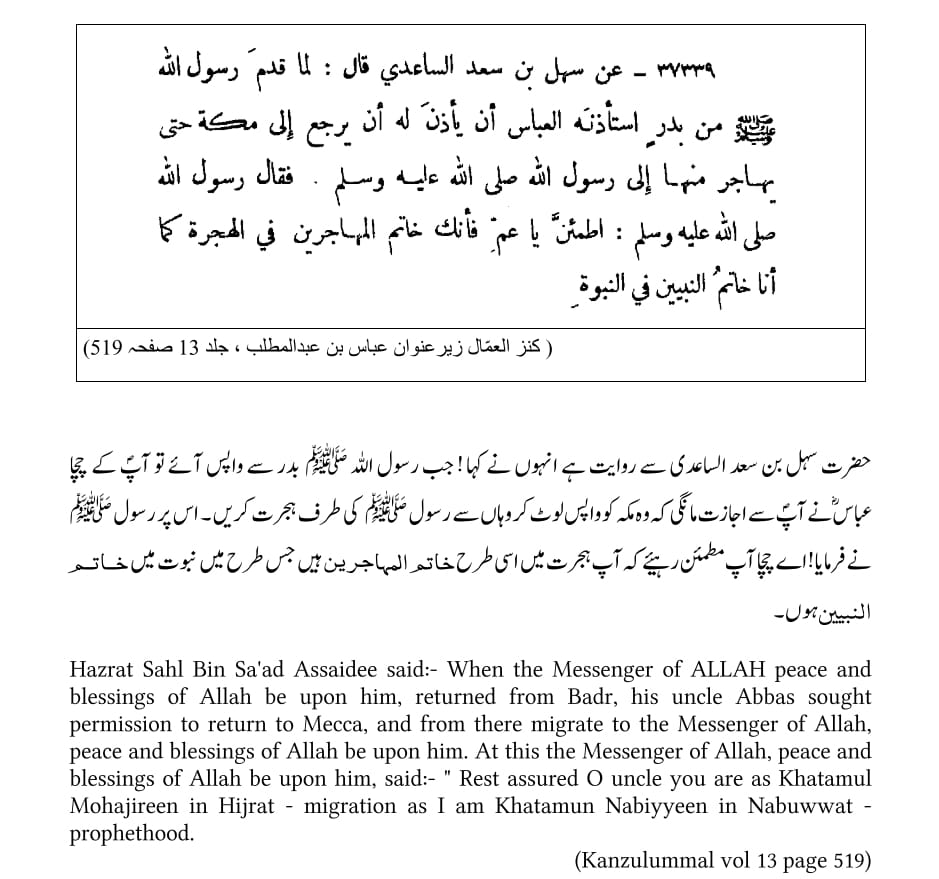
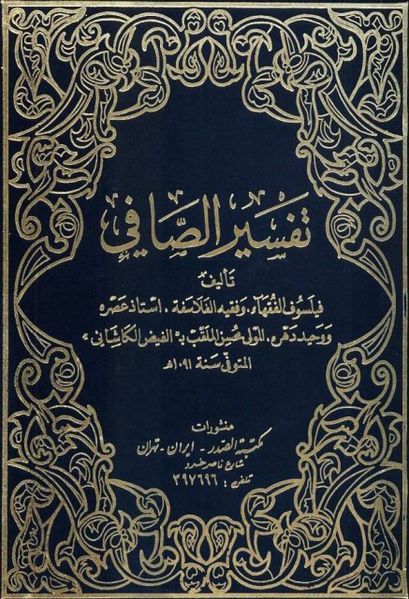
![[Part TWO]Thread on #KhatmeNabuwwat and #KhaatamunNabiyyeenThe Holy Prophet صلعم mentioned in a hadith that had his son Ibraheem رضی اللہ عنہ lived, he would have been a prophet of Allah. This shows that even according to the Holy Prophet صلعم a subordinate prophet could come [Part TWO]Thread on #KhatmeNabuwwat and #KhaatamunNabiyyeenThe Holy Prophet صلعم mentioned in a hadith that had his son Ibraheem رضی اللہ عنہ lived, he would have been a prophet of Allah. This shows that even according to the Holy Prophet صلعم a subordinate prophet could come](https://pbs.twimg.com/media/Dm7S3HPX4AEwFhS.jpg)
![[Part TWO]Thread on #KhatmeNabuwwat and #KhaatamunNabiyyeenThe Holy Prophet صلعم mentioned in a hadith that had his son Ibraheem رضی اللہ عنہ lived, he would have been a prophet of Allah. This shows that even according to the Holy Prophet صلعم a subordinate prophet could come [Part TWO]Thread on #KhatmeNabuwwat and #KhaatamunNabiyyeenThe Holy Prophet صلعم mentioned in a hadith that had his son Ibraheem رضی اللہ عنہ lived, he would have been a prophet of Allah. This shows that even according to the Holy Prophet صلعم a subordinate prophet could come](https://pbs.twimg.com/media/Dm7S6UgXcAIbaGz.jpg)
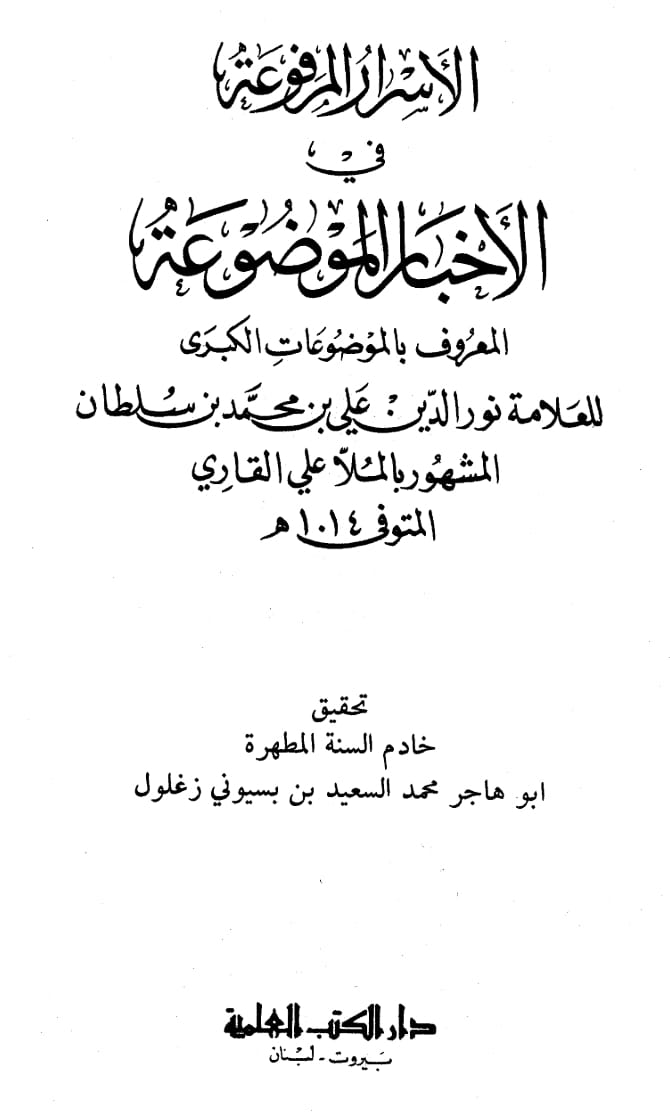 " title="Don& #39;t take my word for it. The Muslim scholars throughout the ages have said the same thing that Prophethood which is subordinate to the Holy Prophet صلعم is attainable in this Ummah. Here is Scholar # 3. Allama Ali al-Qari on this subject. https://abs.twimg.com/emoji/v2/... draggable="false" alt="👇" title="Down pointing backhand index" aria-label="Emoji: Down pointing backhand index">">
" title="Don& #39;t take my word for it. The Muslim scholars throughout the ages have said the same thing that Prophethood which is subordinate to the Holy Prophet صلعم is attainable in this Ummah. Here is Scholar # 3. Allama Ali al-Qari on this subject. https://abs.twimg.com/emoji/v2/... draggable="false" alt="👇" title="Down pointing backhand index" aria-label="Emoji: Down pointing backhand index">">
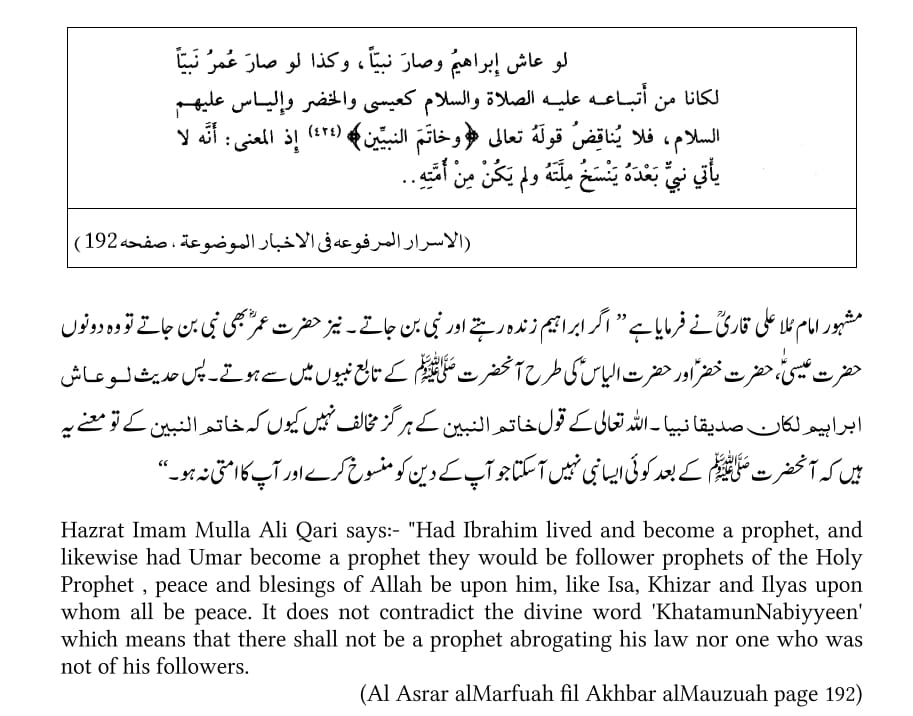 " title="Don& #39;t take my word for it. The Muslim scholars throughout the ages have said the same thing that Prophethood which is subordinate to the Holy Prophet صلعم is attainable in this Ummah. Here is Scholar # 3. Allama Ali al-Qari on this subject. https://abs.twimg.com/emoji/v2/... draggable="false" alt="👇" title="Down pointing backhand index" aria-label="Emoji: Down pointing backhand index">">
" title="Don& #39;t take my word for it. The Muslim scholars throughout the ages have said the same thing that Prophethood which is subordinate to the Holy Prophet صلعم is attainable in this Ummah. Here is Scholar # 3. Allama Ali al-Qari on this subject. https://abs.twimg.com/emoji/v2/... draggable="false" alt="👇" title="Down pointing backhand index" aria-label="Emoji: Down pointing backhand index">">
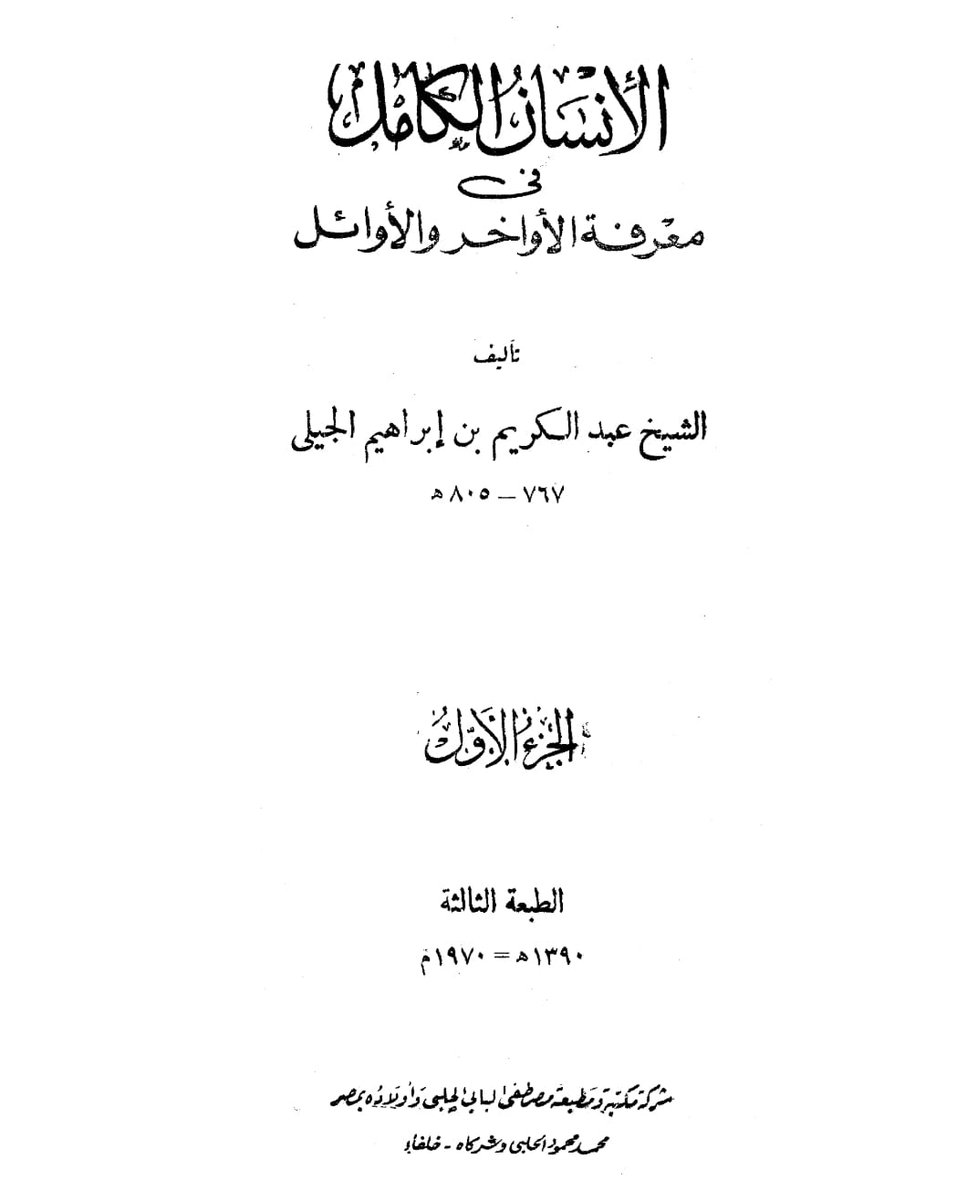 " title="These references beg the question as to what has then concluded from Nabuwwat - Prophethood? I& #39;ll let the scholars of Islam answer this for you as well.6. Hazrat Abdul Karim Jilani& #39;s stance is as follows https://abs.twimg.com/emoji/v2/... draggable="false" alt="👇" title="Down pointing backhand index" aria-label="Emoji: Down pointing backhand index">">
" title="These references beg the question as to what has then concluded from Nabuwwat - Prophethood? I& #39;ll let the scholars of Islam answer this for you as well.6. Hazrat Abdul Karim Jilani& #39;s stance is as follows https://abs.twimg.com/emoji/v2/... draggable="false" alt="👇" title="Down pointing backhand index" aria-label="Emoji: Down pointing backhand index">">
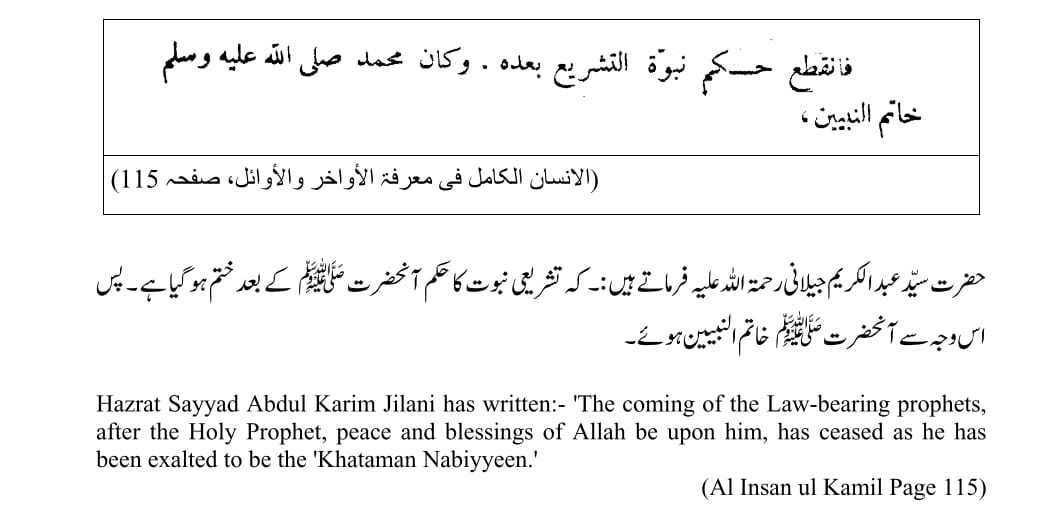 " title="These references beg the question as to what has then concluded from Nabuwwat - Prophethood? I& #39;ll let the scholars of Islam answer this for you as well.6. Hazrat Abdul Karim Jilani& #39;s stance is as follows https://abs.twimg.com/emoji/v2/... draggable="false" alt="👇" title="Down pointing backhand index" aria-label="Emoji: Down pointing backhand index">">
" title="These references beg the question as to what has then concluded from Nabuwwat - Prophethood? I& #39;ll let the scholars of Islam answer this for you as well.6. Hazrat Abdul Karim Jilani& #39;s stance is as follows https://abs.twimg.com/emoji/v2/... draggable="false" alt="👇" title="Down pointing backhand index" aria-label="Emoji: Down pointing backhand index">">
